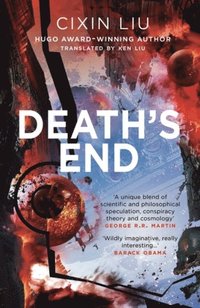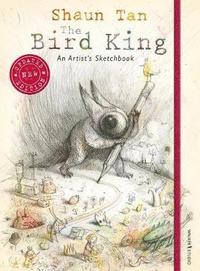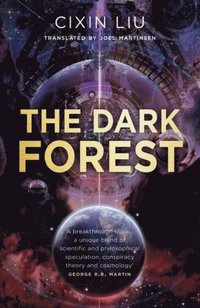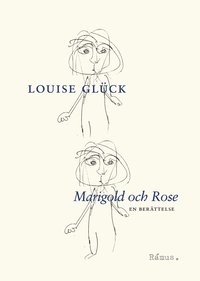
Death’s End by Cixin Liu concludes the very epic story told in The Three-Body Problem and The Dark Forest. And it is very much a conclusion since every possible plot thread seems to have been cut at the end, and that is actually a rather satisfactory feeling. Death’s End is also the most solidly written and most focused book of the three in the trilogy, with a coherent story all the way through, from the beginning during the fall of Constantinope in 1453 to the end at the very very end of time.
The main storyline in the book is about an aerospace engineer, Cheng Xin, who is recruited by the Planetary Intelligence Agency at a time roughly conciding with the initial realisation of the invasion plans from the tri-solarians, as described in The Three-Body Problem. She develops and facilitates a plan to send a human brain towards the invasion fleet to act as a spy and/or ambassador for Earth. After that, thanks to the development of hibernation technology, which was described in The Dark Forest, she is able to be present, and also have a significant role, at all important events in the rest of the history of humanity while skipping the boring parts. It turns out that the tri-solaran invasion is not the greatest threat to humanity – there are much worse things that that can happen.
The whole story is kept very well together and the events from the earlier books are also coherently incorporated into the book. The physics we know today is functionally utilised, and the imagined future findings in science and technology do not contradict present knowledge which I think is very nice. Many speculative science fiction books tend to just annoyingly muddle it. Cixin Liu seems to have a much darker view of what humanity as a collective are able to achieve compared to what I have. In his world, the main progress for humanity comes from singular individuals with big resources. I simply do not like this view of “chosen ones”, but that may be the small thing I don’t like with the book. The author also has a keen mind on details, which is a thing that I like. For instance, there is a brief passage where the issue of life insurance payments when the next-of-kin passes the event horizon of a black hole is discussed. Due to the time dilation, in the next-of-kin’s reference system the black hole traveller will never be seen perished and hence no payout will occur. Those little details are what I really like with the book, and I strongly recommend it, but the other two books in the trilogy are of course required reading in order to understand what is going here.





